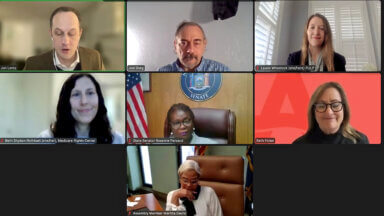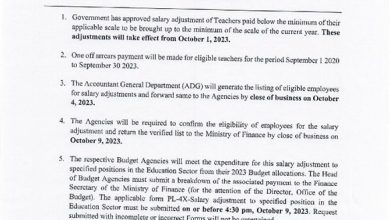Data matching helps older low-income New Yorkers, lawmakers say

On March 16, lawmakers and activists made the case for how data matching can help older low-income New Yorkers who qualify for state benefits, during a webinar hosted by media company City and State.
Panelists in the webinar included NYS Senator Roxanne Persaud and NYS Assemblymember Maritza Davila. Persaud is the chairperson for the NYS Senate Committee on Social Services, and Davila is the chairperson for the NYS Assembly Committee on Social Services.
Persaud and Davila stated that their offices are doing everything they can to ensure that people who need assistance in New York can apply for it.
The February 2023 report on data matching released by The New School’s Schwartz Center for Economic Policy Analysis elaborates on some of the issues.
Older residents on low income miss out on benefits they qualify for “because of confusing and burdensome program application processes, stigma around receiving public assistance, and equitable technology necessary to access these benefits. Lack of access is the most significant barrier,” the report states.
Three programs that these issues are present in include the Medicare Savings Program (MSP), the Supplemental Nutrition Assistance Program (SNAP), and the Home Energy Assistance Program (HEAP). They are administered by the State Department of Health (DOH) and Office of Temporary and Disability Assistance (OTDA), and are largely funded by the federal government.
The report calls for a state data matching program to be established between DOH and OTDA to help resolve these issues.
“Data sharing and file matching of participants from the above programs would undoubtedly increase enrollment in the various programs that deliver much-needed benefits to low-income New Yorkers, and would also benefit all New Yorkers through increased economic activity,” it states.
Senator Persaud mentioned legislation introduced by Senator Kevin Parker and Assemblymember Michelle Solages in her remarks. The bill would allow automated identification of affordability program participants, making it easier to determine who is eligible for programs such as SNAP, HEAP, and others. See the details of the bill here: https://www.nysenate.gov/legislation/bills/2023/s4548).
State Director of AARP New York, panelist Beth Finkel, referenced Gov. Kathy Hochul’s plan to make child care more affordable, accessible and fair, announced in January of this year. These new initiatives will streamline the child care application process, expand access to child care, and support New York’s child care infrastructure. See details on the plan here: https://www.governor.ny.gov/news/governor-hochul-announces-plan-make-child-care-more-affordable-accessible-and-fair-new-york.
Finkel emphasized in her remarks: “If it’s being done for families and children, it can be done for older adults.”




